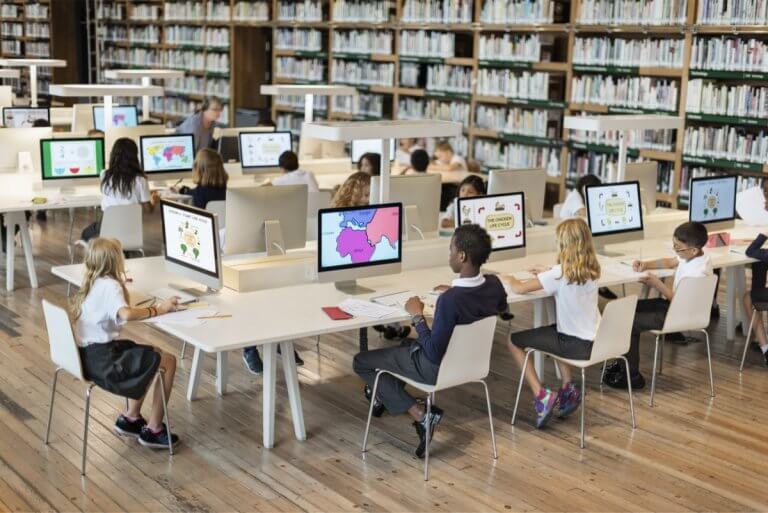
Childhood is supposed to be a time of exploration, innovation, ignoring the impossible and daring to create.
To accompany this notion, the K12 education system should cater to student’s needs by providing active creative lessons.
By offering learners the space for their artistry to flourish, the time for their scientific perspectives to be appreciated and interactive tasks for their quizzical minds to remain encouraged, the rule of the three C’s are acknowledged.
Creativity
Without creativity, where would the world’s greatest inventions be?
As we continue to advance further into the digital age, new technologies and concepts are constantly being churned out.
If K12 learners are alienated from creative forms of learning, there’s a worry they’ll be alienated from the future workforce of innovation and ideas.
This makes creativity a valuable concept to incorporate in lessons from the early stages of education.
Education is always important, however, remember that the world through a child’s eyes is very different than ours. Know that you can teach a child, have fun, and explore and expand their minds by taking proactive and creative approaches to learning. #TuesdayThoughts pic.twitter.com/Ed0mqfaV6j
— Way to Grow (@mplswaytogrow) January 8, 2019
Collaboration
Quite like teamwork, collaboration allows learners to work well together and make the most of the talents of those around them.
By steering students towards group tasks and praising them for collaborative efforts, they’ll gain confidence and feel comfortable working with others in future roles.
This will also enhance their employability skills and help them feel a sense of community and belonging.
Critical thinking
In an era of remote working and instant communication, critical thinking allows us to deduce and see beyond the obvious.
Critical thinking stems from initiative – another valuable skill for young learners to acquire.
The ability to form a balanced and professional judgement without the need for guidance is a skill thousands of employers are constantly hunting for.
For instance, if the modern workforce continues to intertwine technology and remote working styles, employees may need to trust their critical thinking skills to make informed and diligent decisions.
As the Secretary of the NSW Department of Education, Mark Scott, recently told The Sydney Morning Herald, “The insights that we now have, we know critical thinking, creativity, collaboration, will be absolutely vital skills for young people to survive in a highly complex and fast-changing world.
“We’re terrific at assessing knowledge…I think it’s harder to assess critical thinking, creativity…and the risk is that if you can’t assess them, they’ll be a bit neglected.”
‘Education is not the filling of a pail, but the lighting of a fire’ #WBYeats #mural by #LibertyVisual #Belfast #NorthernIreland #quote pic.twitter.com/M6DhUMqIKH
— Belfast Beyond (@Belfast_Beyond) May 8, 2017
As Mr Scott highlights, the fast-changing world requires fast-changing learning techniques so students’ skills are up-to-date and relevant.
However, that’s not to say that it isn’t happening now. As experiential education is on the rise and learners are being released from the clutches of the traditional classroom format and exposed to the outside world, progress is being made.
Perhaps there could be an expansion of awareness and a new set of regulations to validate a school’s attempt to cover all three C’s.
After all, education should not always be about how much you know but how you use the knowledge gained.
Liked this? Then you’ll love…
Art as an academic form of expression
Should the K12 education system include experiential learning plans?







